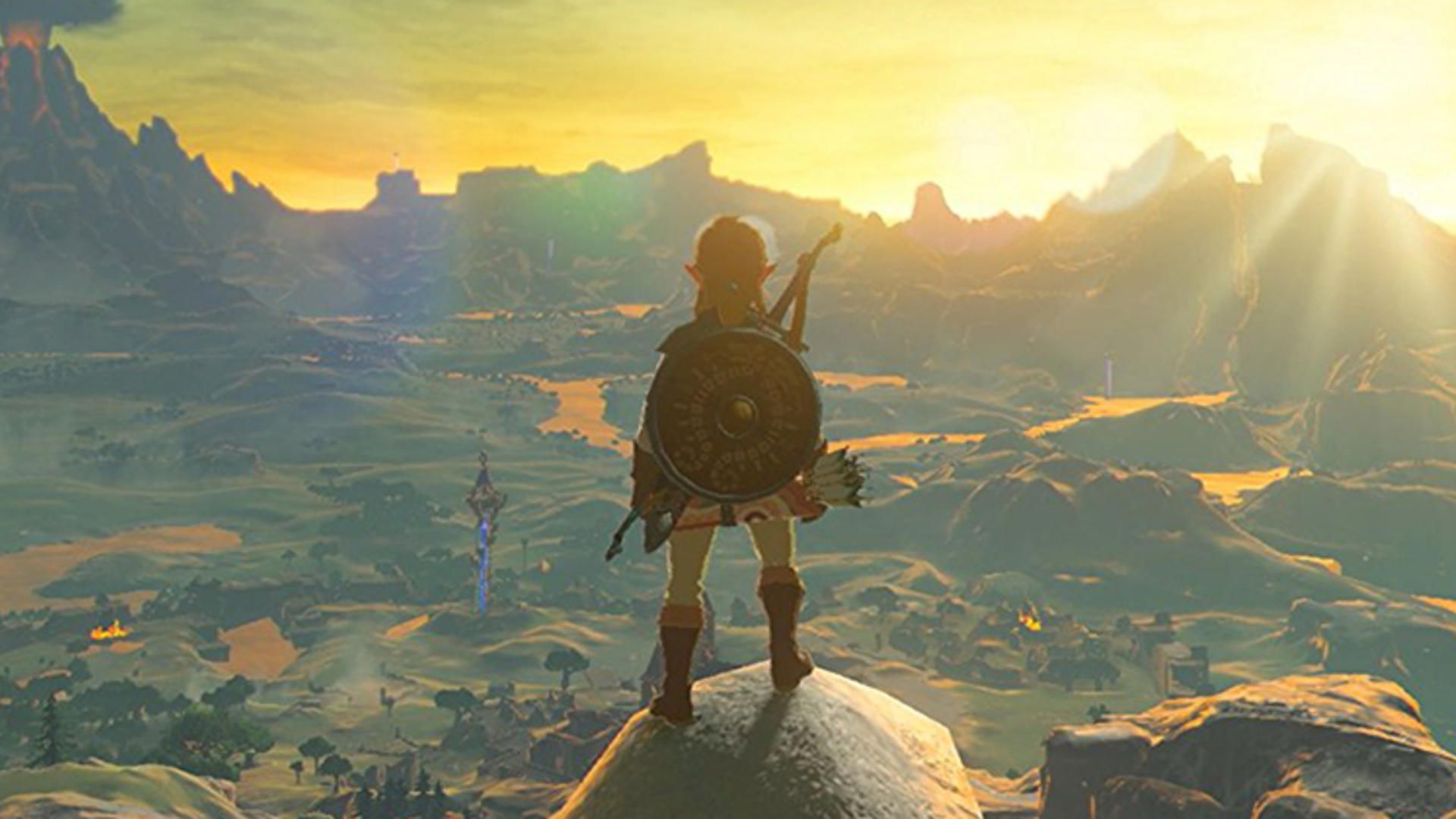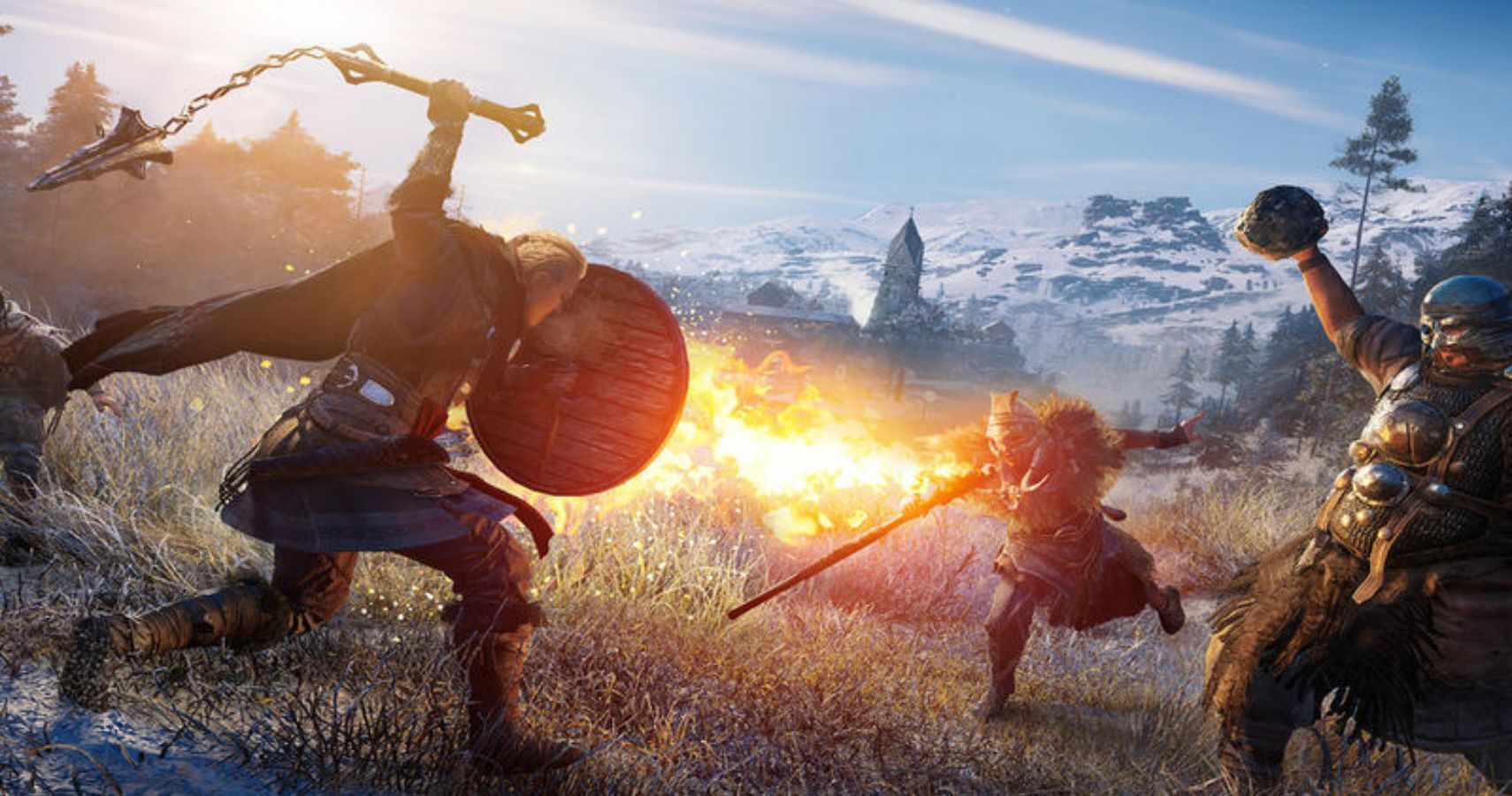
At first glance, video games and poetry might seem to be diametrically opposed to one another – modern, flashy toys designed as virtual worlds powered by fancy machines and written, printed words constituting a form of art unfairly but certainly perceived to be archaic by an enormous number of people. Really, though, there is a lot in common between games and poetry – probably more so than games and books, or games and film, or games and television, predominantly because both forms are at their best when they rebel against their own rules in order to experiment with new ideas.
Niall O’Sullivan is a poet. He is also a YouTube streamer who regularly broadcasts his adventures through stunning, beloved open-world games. Since quitting his job as a gardener in the early 2000s, O’Sullivan has performed at the Roskilde Festival in Denmark and The British Council in Berlin; he enjoyed a residency at the Wimbledon Championships; he published numerous poetry books; he taught and still teaches poetry at London Metropolitan University; and he took over as host of London’s longest running poetry open mic, Poetry Unplugged at the Poetry Café in Covent Garden, which he has been in charge of for 16 years. “I look forward to running it again when it is safe to cram 50+ poets into a tiny central London basement,” he tells me.
Related: After Assassin's Creed Valhalla, Assassin's Creed Infinity Could Work
He has a similarly storied history with gaming. After watching his brother spend hours typing code into a ZX81 to move some Tie-Fighter-shaped blocks around a screen back in the ‘80s, O’Sullivan moved onto the ZX Spectrum, noting that no modern SSD console loading time will ever match the revolution of booting a game with a cassette deck instead of having to code a line yourself. He then moved onto the Sega Megadrive and N64, but fell off gaming in his early adult life, citing fatherhood and the famously bad pay of his profession as the main reasons he was sidelined throughout his 30s apart from some forays into smartphone versions of GTA 3. “2017 must have been a better year as I splashed out on a Switch and Breath of the Wild,” O’Sullivan says. “That little console is a godsend for anybody with a busy schedule and a busier front room.”

Since getting back into video games over the last four years, O’Sullivan primarily plays big-budget open-world titles, roguelikes, driving games, and indie darlings like Dead Cells, Hollow Knight, and Slay the Spire. However, his vocation is inextricably linked to his appreciation for games, which have a lot more in common with poetry and art in general than some people might think.
“For me, the big draw of gaming over other media is that sense of agency,” O’Sullivan says. “Even with something as linear as a Telltale game or a visual novel, it is that sense of power over how things play out – even when the game design means that isn’t really the case. I think this is the biggest issue with latency in cloud gaming. People focus on how it affects shooters and other reflex-based genres but, even with turn-based RPGs, that noticeable sliver of time is enough to create doubt where there was once a feeling of effortless agency.
“This sense of agency can sometimes work the other way too. We are more passive when reading a novel or watching a film and that helps to create a helpful distance between us and the subject matter. For instance, I was quite excited to finally play LA Noire on my Switch as I’d known about the game for a while, had read a few James Ellroy novels, and [had] watched all of those hard-boiled crime movies and TV shows. But I quickly went off it when that sense of agency was introduced to gameplay elements such as examining the bodies of Black Dahlia victims and roughing up African American jazz musicians. I wasn’t able to relive the evils of that period of American history in the usual passive way.”
Clearly, O’Sullivan already had a fascinating perspective on how video games function, although this fascination skyrocketed after the first lockdown last year. After watching famous Irish podcaster Blindboy’s Twitch stream, in which he used Red Dead Redemption 2 to attain a state of flow prior to performing live music, O’Sullivan saw a unique opportunity to experiment with virtual space in a uniquely poetic way.

“When we entered the first grim weeks of lockdown, I read some articles about how photographers were creating images using Red Dead Redemption 2’s photo mode,” O’Sullivan says. “Most of the live poetry scene had transferred their gigs to Zoom but I couldn’t stand the platform. Who wants to use the same interface for their leisure that they use for their jobs? I noticed that there were live writers on Twitch but I didn’t see many mixing their practice with gameplay, so it seemed like a niche that was worth ploughing. I should add that I moved from Twitch to YouTube after I streamed my book launch on the latter and noticed a big uptick in viewers that I thought would spill over into the gaming streams. Turns out I was wrong about that one but it’s too late to turn back now.
“With the poetry/gaming streams, I have mainly stuck to third-person, open-world games. Initially I wanted to write haiku in the traditional sense – to be situated in nature, take a couple of disparate images, and place them together (most Western haiku focus on the natural images and ignore the 17-syllable requirement). The problem was that there was a pandemic and lockdown. So, I started streaming playing Red Dead 2 while reading and writing haiku and it just seemed to work. There are enough little details and random encounters to get lost in the game and find something of interest. There’s also plenty of balance in how you can walk about for hours without having a single hostile encounter, which is perfect for when you want to put the controller down and bash out a poem. The AI is also a cut above the competition – the random Western characters are convincing enough in their uncanny Westworld way. I love Breath of the Wild but I don’t think it has that same level of detail within its vast world.”
Since starting to use games as a kind of primer for his poetry, O’Sullivan has visited various open worlds, most of which fail to reach the same level as Red Dead 2. While he enjoyed zooming around Watch Dogs: Legion’s London, it lacked the immersion necessary for his poetry – perhaps because he knows the real city too well.
“Cyberpunk 2077 felt even more hollow,” he tells me. “Though I had fun writing about a drunk couple by a beach – the woman continuously vomited while her partner kept saying the same thing, for hours and days. I also discovered drone mode in Forza Horizon 4 and had similar fun with the one-dimensional AI (though my expectations for AI in a driving game are considerably lower than they were for Cyberpunk)."

“I’ve recently been playing Assassin’s Creed Valhalla and have spent a few weeks attempting some Old Norse forms such as the Dróttkvætt. I eventually reverted back to free verse and haiku, which fly out of my brain quite effortlessly in comparison to my attempts to keep on top of syllables, alliteration, and internal rhyme. I think it works better when the poems are fast and loose, much like the act of streaming itself. I also like how my way of playing changes when I write poems, it’s not so goal driven and involves more of a sense of curiosity and presence. Similarly, I’m not really fussed about writing great poems either. I don’t think I’ve written a single poem while streaming that I would want to put in a book. It’s more about being present and entertaining while I enter a state of flow.”
While most of the games above are massive, sprawling, triple-A titles known the world over, O’Sullivan is keen to figure out a way to combine poetry with indie games as well. While his methodology isn’t concrete just yet, he’s considered using the lull after each fight in Hades as a window for writing a poem before moving on to the next room. As mentioned earlier, he’s got his eye on quite a few other indies, too – in general, video games and poetry just have a kind of weird yet compelling link, or at least the potential to form one.
“One of my favourite definitions of poetry comes from Emily Dickinson,” O’Sullivan says. “‘If I feel physically as if the top of my head were taken off, I know that is poetry.’ Games seem to excel at this kind of thing. Games introduce you to a particular kind of reality with specific rules, but they have the option of changing that ontology whenever they want; a bit like how a Metroidvania can introduce a new ability that turns the world and gameplay on its head. Poetry does a similar thing with language. It’s not the same kind of language that we use in our day-to-day affairs but getting a slight grip on what that language is pointing to can profoundly change how we view the world and interact with it.
“Perhaps one aspect that overlaps between poetry and games is the re-readability of poetry and the replayability of games. A game doesn’t necessarily need to be replayable in order to be considered a good game and a good poem doesn’t necessarily have to be pored over by the reader in order to be considered good. But there are plenty of poems that reveal new things each time they are read and are often subject to varying critical interpretations. Blake’s The Tyger starts off as a sing-song ode to a ferocious predator that then seems to be about whether God created the darker elements of nature. You can then look at the political/historical context. Blake wrote allegorical poems about the American Revolution and critics such as Tom Paulin feel that The Tyger is an allegory for the French Revolution. There isn’t necessarily a definitive interpretation, but it points to how The Tyger’s metaphorical intensity and its openness to interpretation keep it relevant. This process is reminiscent of games like Undertale – how most people bludgeon their way through the first playthrough to find that their ultimate triumph is a kind of failure. This sets a second, pacifist playthrough in motion. Functionally, it’s the same game, but the player’s viewpoint and the meaning have changed.”
Undertale is a particularly good example, especially because that feeling – that your “ultimate trump is a kind of failure” – appears to be near unanimous among proponents of the game. Still, Undertale, despite its propensity for poetry, is emphatically designed as a video game. It is wildly ambitious and decidedly artistic, but it is not intended – or at least, does not seem to be intended – as a game derived from some sort of poetic process. After spending the last year wandering through virtual worlds as a prompt and vehicle for a new kind of composition, O’Sullivan has also considered what a distinctly poetic game might look like if it attempted to use that art form as the genesis of its own.
“I played Everything a couple of years ago and liked how they incorporated snippets from Alan Watts lectures into the goalless exploration as little rewards for figuring things out,” O’Sullivan says. “I could see poetry, be it well known old poems or specially written work, being used in a similar way. The game could be about feeling present within a particular moment rather than chasing a certain goal. I could also see epic poems such as Beowulf, Paradise Lost, or the Iliad being given the visual novel treatment.
“Coming from the poetry side of things, gamifying elements of how we look at challenging poems might help in coaxing the reader to delve deeper into them. An app was brought out to accompany Eliot’s The Waste Land a few years back and featured readings from a few famous actors and the poet himself. This was all presented within the standard app layout. But what if the interpretive space of a poem was rendered within a game-like space? You could explore it, unlocking varying critical interpretations and readings of the poem as you delve deeper into the game-like, interpretive space that frames it. As someone who works within academia and knows how deadening our attachment to tools like PowerPoint can be, interactive tools such as games may be perfect for engaging students and bringing the seemingly archaic verse of long-dead poets back to life.”
Next: Meet The Team Working On A Final Fantasy 9 Remake You’ll Never Get To Play


